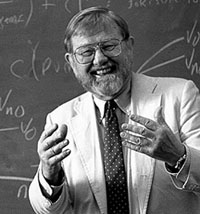Top 6 Quotes & Sayings by Mancur Olson
Explore popular quotes and sayings by an American economist Mancur Olson.
Last updated on April 14, 2025.
Wicksell's old-fashioned liberalism is reminiscent of John Maynard Keynes' attitude toward conscription during World War I. Keynes opposed conscription, but he was not a pacifist. He opposed conscription because it deprived the citizen of the right to decide for himself whether or not to join in the fight. Keynes was exempt as a civil servant from conscription; so there is no need to question his sincerity. Apparently his belief in the rights of the individual against a majority of his compatriots was very strong indeed.
A small group is powerful in matters relating to a particular industry, because then it is normally the only organized force, but it is less formidable when questions which divide the entire nation are involved, for then it must take on organized labor and other large organized groups. The business community in the aggregate is for this reason not uniquely effective as a pressure group.
The money our society spends goes to appease those with power. As such, it goes mainly to those who don't need it. A nation that redistributes income to its poor buys a civilized and humane society, and it buys this with a miniscule share of the national income and a modest reduction in the supply of cleaning women. A country that subsidizes workers in the prime working years sacrifices, not a dust-free living room, but the very muscle of the national economy.
If the state, with all of the emotional resources at its command, cannot finance its most basic and vital activities without resort to compulsion, it would seem that large private organizations might also have difficulty in getting the individuals in the groups whose interests they attempt to advance to make the necessary contributions voluntarily.
Unions are for 'collective bargaining,' not individual bargaining. It follows that most of the achievements of a union, even if they were more impressive than the staunchest unionist claims, could offer the rational worker no incentive to join; his individual efforts would not have a noticeable effect on the outcome, and whether he supported the union or not he would still get the benefits of its achievements.





















